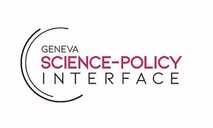Connecting Science and Policy to Tackle Global Challenges: The Role of Boundary-Spanners
- Education
- Governance
- Health
- International Institutions
- International Law
- Partnerships
- Sustainable Development
As COVID-19 and climate change have shown, science is crucial to inform global policymaking related to wicked problems -from framing issues and setting agendas to generating evidence to inform policy options and assess the solutions implemented. The contribution of science to global governance is critical and institutional arrangements to facilitate this relationship have increased over the past few years. However, science-policy engagement is mainly a social process that involves individuals navigating often complex science-policy ecosystems. These individuals deploy a set of skills, knowledge and practical experience to establish productive interaction across boundaries, often with limited resources. Who are those science-policy boundary-spanners? Where do they operate? What challenges do they face and what does success look like for them? Is there a need to better support this field of practice and how? This session will shed light on the specific practice of science-policy boundary-spanning by showcasing and discussing three examples of practice in this field, from both academia and policy, and all related to the UN system, and motivating reflections among the audience.
Sponsor
Speakers
![2022 06 14 Maxime Stauffer]() Maxime StaufferGeneva Science-Policy Interface (Switzerland) and the Simon Institute for Longterm Governance (Switzerland)
Maxime StaufferGeneva Science-Policy Interface (Switzerland) and the Simon Institute for Longterm Governance (Switzerland)![Profile Marie McAuliffe]() Marie McAuliffeInternational Organization for Migration (Switzerland)In-person
Marie McAuliffeInternational Organization for Migration (Switzerland)In-person![2022 06 14 Felix]() Felix KirchmeierThe Geneva Academy Human Rights Platform (Switzerland)
Felix KirchmeierThe Geneva Academy Human Rights Platform (Switzerland)![2022 06 15 Aku Kwamie]() Aku KwamieWorld Health Organization (Switzerland)
Aku KwamieWorld Health Organization (Switzerland)
Chair
![2022 06 15 Nicolas Seidler]() Nicolas SeidlerUniversity of Geneva and Geneva Science-Policy Interface (GSPI) (Switzerland)
Nicolas SeidlerUniversity of Geneva and Geneva Science-Policy Interface (GSPI) (Switzerland)








